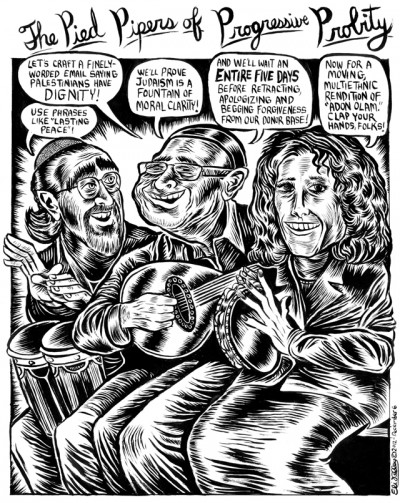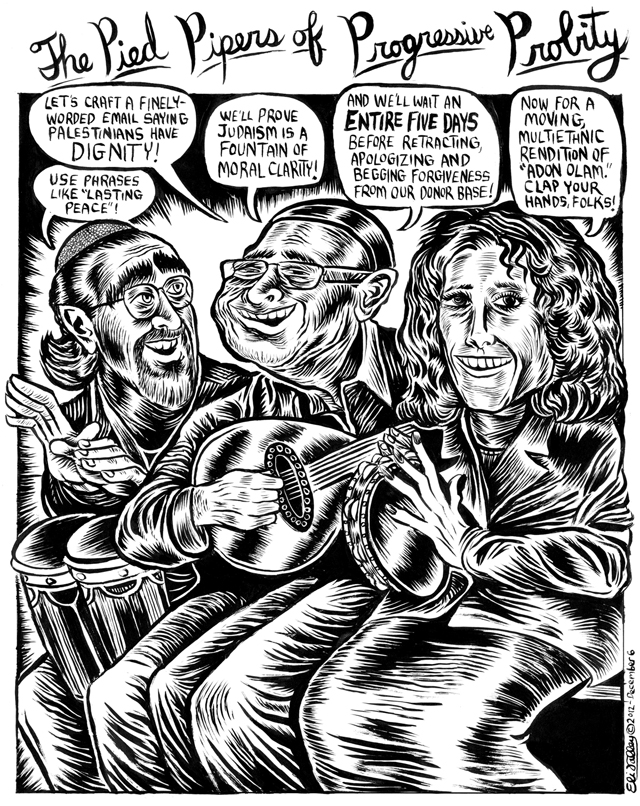
I had the opportunity to meet Eli at this year’s New Voices student journalism conference and learned about the general political lens through which he interprets current events. In his new comic he contends that while the rabbis certainly say that Judaism can be a guide for moral clarity, in the face of political pressure they find themselves, “retracting, apologizing, and begging for forgiveness from [their] donor base.”
If I were a member of Bnai Jershurun, I might feel uncomfortable or offended by this comic. It could be read as a personal attack on their rabbis, their congregants, or on the eccentric nature of their spiritual environment. But I am not a member of that synagogue and I did not read it that way.
I read it not about the rabbis of Bnai Jershurun, but about rabbis in general. I don’t think this comic would be so evocative unless it captured a larger phenomenon that many more Jews, living outside of the Upper West Side, are also grappling with.
Rabbis are leaders of their Jewish communities, and so one could say that they need to profess views that are sufficiently representative of their congregants. One could maintain that Jewish leaders must make efforts to ensure that everyone feels safe and comfortable.
Community and comfort are really important. To feel alienated is lonely and confusing.
But I wonder if we have come to a point where we’re so fearful of alienating people that we are unable to take strong, moral positions during situations in which a response is needed. The recent silence from the American Jewish community on Netanyahu’s decision to build settlements in E-1 is an unfortunate, yet sobering example.
Maybe the tension stems from the fact that political leaders and Jewish leaders aren’t supposed to lead in the same way, and yet in so many instances, they do. I would expect, and demand that politicians work to represent the views of their constituencies. In the face of enormous political pressure, watching politicians cave can sometimes be beautiful examples of our democracy at work—a government by the people for the people.
But if rabbis are leading congregations based on the lessons they’ve internalized from their years of studying Jewish moral teachings, then political pressure or even communal discomfort are questionable, and unsettling reasons to cave.
I suppose one solution could be for us to say, “Well, synagogues shouldn’t be so political anyway. Jews hold different views, they are all relatively valid, and rabbis shouldn’t assume that they can speak on behalf of others. Let’s create a safe space for people to come together, and let’s leave politics out of it.”
This is an understandable and tempting idea. And yet, I wonder if those same people would say synagogues should also refrain from encouraging support for the state of Israel. My guess would be no. But what if there are congregants who feel alienated by certain Pro-Israel statements? Then the question becomes which political statements will be tolerated in synagogues and which will not be. Who draws that line?
What are the roles of our Jewish leaders, really? To represent us? To teach us? Is Judaism meant to provide us with answers to the tough ethical and political quandaries we currently face? Can it?
I don’t quite know what role exactly Judaism plays in politics anymore. It seems as though everyone has their own opinions and perspectives, and every email sent out has to be crafted quite carefully so as not to offend individuals or cause anyone discomfort. The price we pay for this however, I’m not so sure.

